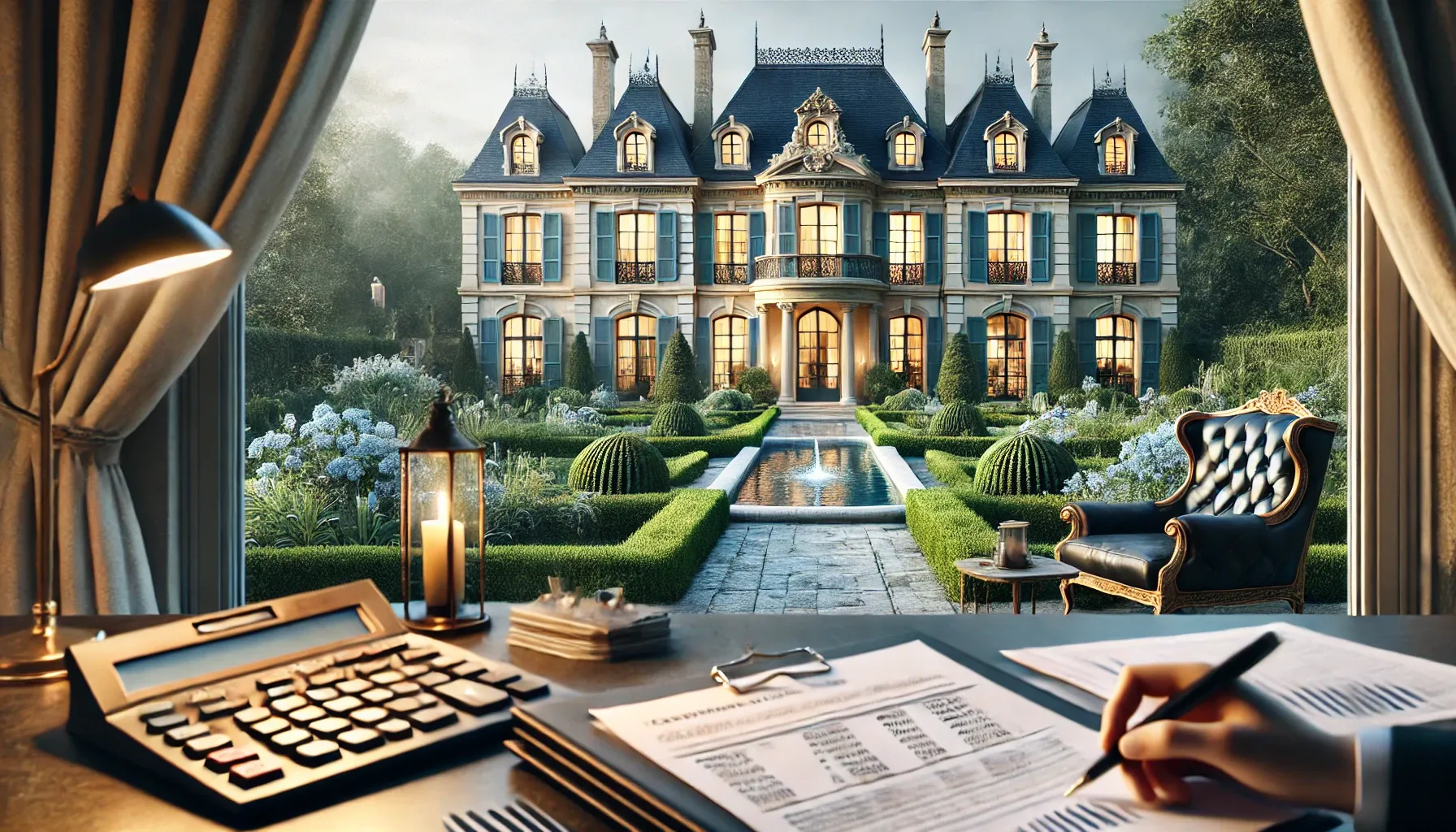Features of property taxes in France: what buyers need to know?

- How to avoid tax traps when buying real estate in France?
- What is the variety of property taxes in France?
Interest in real estate in France
The interest of Russians in purchasing real estate in France remains consistently high and continues to persist. However, the process of formalizing residential properties raises many questions and requires careful attention, as it involves many specific details. In this article, we will delve into the analysis of the tax aspects related to real estate in France.
Taxes on buying and selling real estate
When discussing real estate taxation, it is important to note that one-time payments arise not only when purchasing but also when selling properties. When acquiring real estate, new owners should consider the costs of notary services, known as frais de notaire. This is a fixed percentage of the transaction value, which can vary depending on the region and the year the property was built. Typically, this amount is around 6.5% of the total cost, but it can change depending on:
- availability of a mortgage;
- volume of documents;
- various actions performed by a notary.
Notary fees
It is important to note that for new buildings, the size of notary fees is significantly lower, amounting to only 2.5%. This is great news for those planning to buy new housing. The low rate is explained by the fact that VAT of 20% is already allocated for new properties. Additionally, both individuals and legal entities registered in French-speaking countries can reclaim the paid VAT if they purchase a property related to investment programs, such as "leaseback".
Exemption from property tax
Another pleasant aspect for buyers of new buildings is the opportunity to be exempt from property tax for two years, starting from the moment construction is completed. To take advantage of this, it is simply necessary to submit the appropriate declaration on time. Those who wish to sell their property in France should consider how long they have owned the property.
Capital gains tax
If the transaction occurs within the first five years, the capital gains tax for non-residents and foreign citizens is 36.2%. When calculating the taxable base, all expenses related to the purchase and maintenance of the property can be taken into account:
- notary service expenses;
- commissions for agents;
- money spent on repairs;
- other expense items, provided that they are documented.
If a seller decides to sell the property 6 to 22 years after purchase, the capital gains tax rate decreases by 1.65% for each full year of ownership. An owner who has held the property for more than 22 years is exempt from paying the tax, but this rule applies only to individuals and certain transparent civil structures.
Property ownership tax
Every year, property owners are required to pay taxe foncière – a property ownership tax that usually arrives in late summer or autumn. It's important to consider these mandatory expenses when planning your budget.
Conclusion
Thus, while investing in real estate in France can be tempting, it is essential to thoroughly examine all aspects, including taxes and additional fees, to avoid surprises in the future.
The variety of property taxes in France
Property taxes in different regions vary in size depending on the area of the housing and its geographical location.
29 January
29 September
9 October 2024
9 October 2024




Nevertheless, this process can be complicated by a number of political factors. For example, in Courbevoie (a district in La Défense, located near Paris), the owners of a 5-room apartment with an area of 95 square meters pay about 800 euros per year, while a similar apartment in Montrouge, which is in the same department, would be taxed twice as much.
There is often a connection between the political orientation of local authorities and tax rates: the more left-leaning the administration, the higher the tax rates. To obtain detailed information, it is always useful to refer to specific data for each individual situation.
Tax refund when selling real estate
Most tax systems operate in such a way that a portion of the tax paid is returned to the owner at the time of selling the property. In addition to this, in France, there is a housing tax (taxe d'habitation) that must be paid by those who actually reside in the property, whether they are owners or tenants.
This tax can be seen as compensation for services provided by local authorities, such as:
- cleaning up trash,
- water supply,
- sewer,
- security and other services.
This tax is calculated as of January 1st of the tax year. The final amount depends on the owner's income and the composition of their family. In the French tax system, the tax unit is considered to be the family, which includes spouses and their minor children; once children reach the age of 18, they become independent tax units.
Tax on vacant properties
If the property owner does not reside in their property and the apartment remains vacant, they will likely have to pay a tax on vacant premises (taxe sur locaux vacants), which applies to large cities, including the Paris area and southern regions of the country.
Changes in luxury tax
Recently, there was a significant reduction in France.progressive luxury tax(impôt sur la fortune immobilière) by the new government immediately after the elections. This tax rate now applies only to real estate with a value exceeding 1.3 million euros, with existing debts and encumbrances deducted from the total assets.
This creates interesting conditions where, even having sufficient funds for purchases, it may be more sensible to take out a loan. Asset accounting for tax purposes is done as of January 1, so if expensive real estate is purchased at the end of the year, there is an opportunity to postpone the transaction until the beginning of the new calendar year.
Current tax rates
Effective January 1, 2018, tax rates changed as follows:
- For real estate properties with a value ofFrom 1.3 to 2.57 million euros, a tax rate of 0.7% applies.
- for real estate, the value of which isfrom 2.57 to 5 million euros, the rate reaches 1%.
Due to this, in order to properly understand the housing tax system in France, it is important to consider a multitude of factors that can affect the total amount of tax liabilities.

Conclusion
In concluding our overview of property taxes in France, I would like to emphasize how important it is for potential buyers or homeowners in this country to understand all the nuances related to tax obligations in advance. No matter how appealing the prospect of acquiring French square meters may seem, it is essential to remember that the tax system here can be complex and multifaceted.
Buying real estate is not just an investment, but also involves a number of additional expenses that should be anticipated. Taxes on the purchase, ownership, and sale of real estate require careful consideration. We have looked into the main aspects concerning:
- Notary fees
- Capital gains tax on sales
- Possession taxes
- Tax on residence
Moreover, factors such as location and the political situation in the region can significantly affect the final amounts of tax payments.
Thus, for successful property ownership in France, it is essential to analyze not only the cost of the property itself but also all associated expenses that can significantly increase the total investment amount. I urge everyone considering purchasing real estate in France to thoroughly study all tax aspects and, if necessary, consult with professionals for expert advice. This will help minimize risks and make the buying process more comfortable and transparent.
Ultimately, awareness of tax liabilities is the key to a successful and profitable real estate purchase that will become a valuable asset for years to come.
Comment
Popular Posts
29 September
350
9 October 2024
9935
9 October 2024
1485
Popular Offers

Subscribe to the newsletter from Hatamatata.com!
Subscribe to the newsletter from Hatamatata.com!
I agree to the processing of personal data and confidentiality rules of Hatamatata










